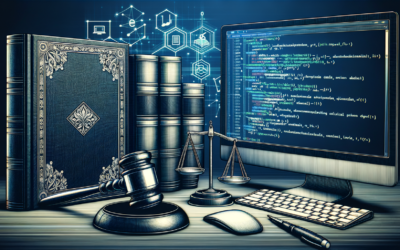Automated Contract Audit
The digital age is radically transforming traditional ways of working in the legal world. Contract auditing, the cornerstone of corporate consulting and compliance, is no exception to this trend. With the emergence ofartificial intelligence and legal algorithms, practices are being refined and automated, promising to save time and increase accuracy.
What is an Automated Contract Audit?
Automated contract auditing refers to the use of advanced software to systematically examine a company’s contracts. This technology enables us to detect risks, ensure compliance and optimize the management of existing contracts. The use of tools such as Contract Lifecycle Management makes this process more efficient, reducing human error and enabling in-depth analysis at unprecedented speed.
Benefits of Automation
Compliance Benefits
One of the major advantages of automated contract auditing is compliance management. Regulations are constantly changing, and companies need to ensure that their contracts are up to date with the latest legal provisions. Regtech, combined with automated auditing, supports this regulatory and legislative watch, helping to keep contracts within the required legal framework.
Efficiency and Cost Reduction
Automation enables contract audits to be carried out much faster than traditional methods, resulting in a significant reduction in costs. What’s more, integrating solutions such as smart contracts into the contract ecosystem also automates contract execution, minimizing the time and costs associated with managing them.
The role of emerging technologies
Artificial Intelligence and Machine Learning
Artificial intelligence can make a significant contribution to the automation of contract audits. With Machine Learning, systems can learn from datasets and continuously improve contract analysis. Added to this is the ability to anticipate potential risks and provide recommendations for mitigating them.
Blockchain and Transparency
Blockchain brings an additional layer of transparency and security to automated contract audits. It guarantees the integrity of registered contracts and provides indelible tracking of all modifications, creating mutual trust between parties without the need for a third party.
Challenges and limits
Technology adoption
Despite its advantages, the adoption of automated contract auditing may encounter resistance due to reluctance to change or lack of technological skills. Training and legal onboarding are essential to effectively integrate these new practices.
Data accuracy
The quality of the automated audit depends largely on the accuracy of the data entered. Data entry errors or incomplete data can lead to erroneous conclusions, underlining the importance of good data management right from the start.
Frequently asked questions
Here is a list of frequently asked questions about automated contract auditing.
What’s the difference between a traditional and an automated contract audit?
Traditional auditing relies mainly on manual analysis of contracts by professionals, while automated auditing uses software to analyze large volumes of contracts more efficiently and accurately.
Can automated auditing tools replace lawyers?
No, they assist legal professionals by automating repetitive tasks and providing preliminary analysis, but human judgment and expertise remain indispensable for final decisions.
Is automated contracting safe and legally recognized?
Yes, with technologies like blockchain, automated contract auditing offers improved security. In addition, jurisdictions are beginning to recognize the legality of automated processes and smart contracts.
***This text does not exhaust the subject of automated contractual auditing, but provides a general overview for readers interested in innovation in the legal sector.



